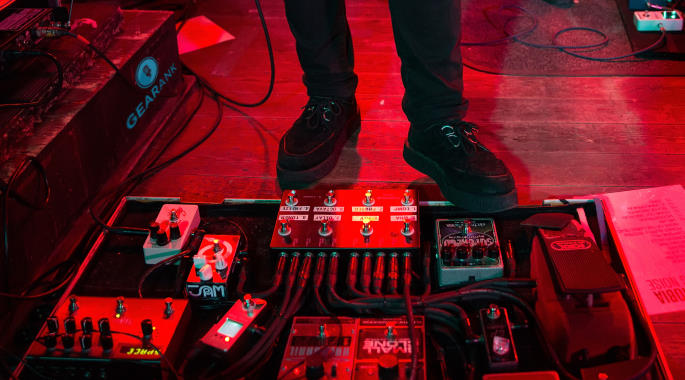
Disclosure
We recommend all products independently of 3rd parties including advertisers. We earn advertising fees from:
• • • • •

• • • • •
Amazon
As an Amazon Associate we earn from qualifying purchases.
• • • • •
Guitar Accessories
Get your guitar pedals and cables organized for stress-free practicing, performing, and recording. And you do this by securing your floor-based gear onto a reliable pedalboard, optimizing your guitar pedal order.
Here, we feature the best pedalboard choices that are currently available. These can be readily bought from major US retailers, conveniently divided by size (Small and large) and by power supply (Unpowered and powered).
With careful planning and good-quality patch cables, these pedalboards let you organize your gear and reduce cable clutter. Some have cases that protect your gear during storage or transport.
Note that this guide defines small as under 20 inches wide and large as 20 inches or wider.
The Best Guitar Pedalboards – 2024
Author & Contributors
Alexander Briones
I have been writing about and researching music gear for many years, all while serving as a music director at my local church. I engage in guitar playing and singer-songwriter stints, in addition to mentoring young musicians and teaching guitar and bass.
The Best Pedalboard - Unpowered Best Small Pedalboard
These are standalone pedalboards that are less than 20 inches wide. These are unpowered boards, so you'll have to buy a separate power supply.
On-Stage GPB2000 Pedalboard with Bag (18.75" x 6")
The GPB2000 continues to top the ratings in this category.
It is an affordable and compact pedalboard ideal for small rigs. It lets you position up to 5 regular-sized pedals horizontally on a slight incline for easier access. This is perfect for minimalist setups with essential effects like a chorus, compressor, delay, reverb, and overdrive pedal.
The board is crafted from lightweight aluminum, with strategically placed cutouts to mount power supplies and make room for audio and power cables. It comes with adhesive hook & loop strips for securing your pedals to the aluminum board.
It also comes bundled with a gig bag with reinforced top and bottom and a removable shoulder strap.
Features:
- Frame: Aluminum Rail
- Inclination: Inclined
- Board Dimensions: 18.75" x 6"
- Weight: 2.75 lbs
- Pedal Fastener: Adhesive Hook & Loop Strips
- Accessories: Gig bag included.
Pros
I am impressed with its thick aircraft grade aluminum construction. This solid pedalboard can take a beating. The size fits most pedals, even odd shaped ones. The included gig bag is also surprisingly good, with high quality padding.
Cons
The incline is not high enough for some power supplies to fit into. You'll either have to modify the rubber padding to elevate the incline, or place the power supply on the board, or adjacently on the floor.
Overall
For the price, the On-Stage GPB2000 is a great deal for those who prefer to only bring a few essential pedals to their gigs.
Pedaltrain Novo 18 SC Pedalboard with Soft Case (18" x 14.5")
Pedaltrain are known for their use of light and sturdy aircraft grade aluminum metal, joined together in an open rail design.
The Novo 18 in particular has a taller 5-rail configuration that easily accommodates around 18 standard size pedals, and can easily handle a mixed bunch with wider and taller stompboxes.
The board is angled for easy foot placements, and has enough space to mount a power supply along with cables underneath. This sloped design together with the use of hook-and-loop velcro allows for flexible pedal positioning and a clutter-free pedalboard setup.
The Novo 18 SC comes with a basic soft case that many find satisfactory. However, if you're going touring or need more protection then for a higher price instead of a soft case you can get one bundled with a hard case for improved protection - see it at Amazon or Sweetwater.
Features
- Frame: Lightweight Aircraft Grade Aluminum 5-rail Setup
- Inclination: Angled
- Board Dimensions: 18" x 14.5" x 3.5"
- Softcase Dimensions: 20" x 17" x 5”
- Weight: 4.0 lbs
- Pedal Fastener: 90" Adhesive backed Hook-and-Loop
- Accessories: Assorted Zip Ties.
Pros
Market sentiment points at the Pedaltrain Novo 18 SC as the best guitar pedalboard for its perfect combination of size, reliability, and functionality for their needs. Many are pleased with the strength of the frame especially when considering its weight. The solid velcro connections also deserve kudos. Another commendable feature is its rail design, which provides extra room for cable management, which is especially important for boards that hold a lot of pedals.
Cons
The soft case does not have a zipped pocket for storing cables and other tools. When traveling, there's a tendency for the velcro to loose grip while inside the soft case. This is happens when the storage is positioned improperly (vertically as opposed to horizontally on the floor).
Overall
The Pedaltrain Novo 18 SC has consistently generated high marks from users for several years and has remained on our recommended list ever since we first published the guide back in 2017.
The Best Pedalboard - Unpowered Large
If you want to setup more pedals, or utilize a few large size stompboxes, then this is the section for you. These boards are more than 20 inches wide but they don't have an integrated pedalboard power supply - if you need power you can jump ahead to Best Powered Large Pedalboards.
Pedaltrain Classic PT-CL1-SC Pedalboard with Soft Case (22" x 12.5")
The PT-CL1-SC is a pedalboard that features Pedaltrain's "classic" 4-rail design, built using aircraft-grade aluminum that's preferred for being durable and light.
The dimension of this board is 22" x 12.5" x 3.5", which has good enough pedal space to accommodate most rigs. Since this is part of their Classic line, it comes with a thicker railing that's similar to the boards that they sold back then the company was starting out.
The board has integrated power supply mounting via the open front design and raised elevation. This makes it easier to mount a power-supply, and provides ample room for mounting the cables.
This pedalboard ships with everything that you need to secure your pedals, including an 88" adhesive-backed hook-and-loop, and zip ties for better cable management.
Pedaltrain also bundled it with a softcase.
Features
- Frame: Aluminum Rail
- Inclination: Inclined
- Board Dimensions: 22" x 12.5" x 3.5"
- Weight: 2.5 lbs
- Pedal Fastener: Adhesive
- Accessories: Assorted Hook and Loop fasteners, Softcase.
Pros
I am pleased at the dimensions of this pedalboard. It has enough room for most stompbox setups, with provisions for future gear. If you own a wah or volume pedal, or bigger multi-effects pedals, you will be happy with its space and its overall structural design. This unit is light, considering its size. It is especially easy to setup.
Cons
The bundled softcase is not as impressive as the board itself, prompting some to complain.
Overall
With its high number of satisfied users, the Pedaltrain Classic PT-CL1-SC is definitely worth checking out if the dimensions match what you need.
Pedaltrain Novo 24 TC Pedalboard with Tour Case (24" x 14.5")
The Novo line is designed to be Pedaltrain's more light-weight take on their popular rail design aluminum pedalboard.
This particular model offers quite a lot of space at 24" x 14.5". With 5 rails it has plenty of room for seven, maybe up to eight pedals (when squeezed together), and can easily handle the depth of volume and expression pedals with enough space for another smaller pedal.
Like other Pedaltrain boards, the aluminum railing design gives plenty of room for cabling, while providing more than adequate support for attaching your pedals.
It also comes with 120" of hook and loop fasteners that you use to setup your pedals.
Finally, the Novo 24 TC comes with a tour case, which makes for easy storage and mobility, while also protecting your pedals and setup.
Features
- Frame: Aluminum Rail
- Inclination: Inclined
- Board Dimensions: 24" x 14.5" x 3.5"
- Tour Case Dimensions: 26" x 17" x 9”
- Weight: 3.8 lbs
- Pedal Fastener: Adhesive
- Accessories: Assorted Hook and Loop fasteners.
Pros
The Pedaltrain Novo 24 TC is a lightweight pedalboard, well loved for its good balance of portability and reliability. It's impressive how light this solid feeling board is, and how easy it is to setup.
Cons
The case is a bit bulky, but this is a necessary trade-off for the extra protection it provides when compared to soft cases.
Overall
The Pedaltrain Novo 24 TC is a good buy for those who want a road worthy pedalboard package for their growing number of pedals.
The Best Pedalboard - Unpowered Large - Best Budget Pedalboard
Here's a low cost alternative to the models above.
SOYAN Large Metal Guitar Pedal Board (22” x 12.5”)

This is an affordable large size pedalboard (22" x 12.5") made from solid metal. It is cheaper than the average pedalboard cost.
It has rectangular slots for cable management, and is inclined to make room for a power supply underneath.
For the price, this board can fit a good number of pedals, and it comes with everything you need to attach your pedals, including velcro and an elastic strap for the power supply.
It also comes with a lightweight nylon carrying bag, for safe storage and transport of your pedals.
Features
- Frame: Metal Rail
- Inclination: Inclined
- Board Dimensions: 22" x 12.5" x 2.36"
- Tour Case Dimensions: 23" x 14.2" x 5.9”
- Weight: 5 lbs
- Pedal Fastener: Adhesive Velcro
- Accessories: Velcro tapes and elastic straps.
Pros
Value for money is the main reason people love this board, especially since it comes with the necessary accessories for setting up. I'm pleased with the space it provides and how solid it is. The quality of the nylon carrying bag is sturdy and has enough room for most pedals.
Cons
The allotted space for the power supply can be a drawback, and the board is heavier compared to aluminum alternatives. Also note that wah, volume, expression, and other big pedals will not fit into the nylon bag.
Overall
If you're looking for a good quality yet affordable large-size pedalboard, then this is highly recommended as the best pedalboard for this category.
The Best Pedalboard - Best Small Powered Pedalboard
Here we look at the best powered pedalboards. They come with integrated power supply for powering multiple pedals, while others are bundled with a compatible power supply. This can be a more convenient option than the DIY approach of purchasing and fitting your power supply separately but there are some things to watch out for. Since pedals can have different power requirements (voltage - current Draw - connector), you should check to make sure of the compatibility of the bundled power supplies. Some of the powered pedalboards below offer 18V power options, but if you're using pedals that are powered by standard 9V adapters then these complications shouldn't apply. Note that many of these pedalboards are tailored to standard pedal sizes, which means that fitting bigger or even smaller than regular pedals may require some careful planning.
Voodoo Lab Dingbat Tiny Powered Pedalboard Package (14.5" x 6.5") with Pedal Power X4
As the name implies, the Voodoo Lab Dingbat Tiny is meant for those who only use a few pedals.
The board itself is made from aircraft-grade aluminum, with slots for cable management instead of rails.
This particular package comes with Pedal Power X4, which fits into the underside of the angled board. It is an isolated power supply that can run up to 4 pedals, which is just the right number given the board's size.
Included are all the necessary accessories to setup your pedals, including hook-and-loop mounting tapes, UV-resistant cable ties and 4-way tie mounts.
Finally, it comes with a padded gig bag with removable shoulder strap, meant to be easy to carry around.
Features
- Frame: Aluminum
- Inclination: Inclined
- Board Dimensions: 14.5" x 6.5"
- Tour Case Dimensions: 26" x 17" x 9”
- Weight: 1.35 lbs (1.8lbs with Pedal Power X4)
- Pedal Fastener: Hook-and-Loop Fasteners
- Accessories: Padded Gig Bag, Hook-and-Loop Fasteners
Pros
This board is highly rated for having just the right size for building a portable 4-pedal rig. And since it is bundled with a power supply, it's a convenient plug-and-play pedalboard. The board itself gets our thumbs up for being solid, and its slotted design allows for more surface area to secure your pedals onto. The quality of the included padded bag was a pleasant surprise.
Cons
Not much on the negative side, but note that the slotted board design may be a bit limiting when it comes to cable management.
Overall
With power supply included and the quality of the board and bag, the Voodoo Lab Dingbat Tiny is a great pedalboard choice for 4-pedal setups.
Voodoo Lab Dingbat Small Powered Pedalboard Package with Pedal Power 2 Plus (18" x 7.75")
With the popularity of compact "micro" pedals, even compact pedalboards can now house more than five effects pedals.
This is where this package comes in, with its built in power supply (Pedal Power 2 Plus), which can power up to 8 pedals. And it does so while maintaining the reliability and quiet operation expected from Voodoo Lab power supplies.
At the core of this package is the Dingbat aluminum board, which is crafted from lightweight but durable aluminum.
Instead of the popular rail design that other pedalboard makers use, Voodoo Lab only added slots for cable management, which can be a bit limiting but makes more room for pedal to board attachment.
Features
- Frame: Aluminum (Slotted)
- Inclination: Inclined
- Dimensions:18" x 7.75"
- Softcase Dimensions: Not Specified
- Weight: 2.6 lbs (3.84 lbs with power supply)
- Pedal Fastener: Hook-and-loop fasteners
- Accessories: Heavy duty gigbag
Pros
Simple and effective nicely sums up the Dingbat Small with Pedal Power 2 Plus. Satisfied owners range from singer songwriters who use acoustic guitar to lead guitarists, and also bassists. The board's inclined angle feels more comfortable when compared to other pedalboards.
Cons
We have no complaints about the quality of the board or the power supply included, but it should be noted that with the space of the board, 8 power outputs is a bit too much if your using regular sized pedals.
Overall
If you're into the micro pedal setup, or if you have pedals with high current and voltage requirements, then do check out the Voodoo Lab Dingbat Small with Pedal Power 2 Plus.
The Best Pedalboards - Best Powered Pedalboard Large
These are over 20 inches wide and come with a power supply.
Gator GPT-PRO-PWR Powered Pedalboard (30" x 16")
The Gator GPT-PRO-PWR is a classic-style pedalboard that includes a power supply and a convenient carrying case. Crafted from plywood and covered in Tolex material, this pedalboard offers a spacious surface area of 30" x 16", allowing you to accommodate up to ten pedals comfortably. You can even attach a whammy pedal, volume pedals, wah pedals, and other bigger stompboxes without issue. It has enough space for the pedal collection of most guitarists.
It features an angled design for easier access to your pedals and has space at the bottom for mounting a power supply.
The GPT-PRO-PWR comes bundled with a G-Bus-8 onboard power supply, which offers 8 x 9V and 3 x 18V outputs. It's worth noting that while it includes 8 x 9V connectors, it only provides a single 18V connector, so additional connectors may be required if you intend to use the other 2 x 18V outputs. If you need extra power, there's enough space on the board to accommodate a second power supply, a feature that many users have found beneficial.
Like many Gator pedalboards, this one uses hook and loop fastening strips as pedal attachments, ensuring your pedals stay securely in place. Additionally, it comes with a matching carrying case that features two storage pockets for cables and other accessories.
Features:
- Frame: Plywood Pedalboard Covered in Tolex
- Inclination: Angled
- Soft Case: Nylon Padded Carrying Case
- Dimensions: 30" x 16.5" x 2.5"
- Weight: 17.5 lbs.
- Power Supply: G-Bus-8 with 8 x 9V, 3 x 18V Outputs
- Accessories: Hook-and-loop strips, 9 x 24" straight end cables to power pedals, 8 x 9v & 1 x 18v cables
Pros
The Gator GPT-PRO-PWR has plenty of room for up to ten effects, and is able to handle bulky pedals. The frame is well built and feels solid, there's no worry of it breaking up during travel or when in use. It has a nice gentle slope that doesn't feel awkward when stepped on. The included power supply is of good quality, and the design of the board makes it easy to add another power supply when your rig needs more. The bundled gig-bag is high quality, as expected from Gator which is known for quality guitar cases. It is able to handle the weight of a packed large pedalboard. Another plus is the two big pockets, which can fit all your guitar accessories, and even some maintenance tools.
Cons
The included power cables are not as durable as the frame, and this is understandable. Thick and clunky cables will just add to the weight. Speaking of weight, being a 30" board, this thing is massive. And it can get heavy and you pack every space with pedals. You'll need to exert extra effort in carrying this board around, and it will require more trunk space. Also note that the tolex may require re-stapling from time to time.
Overall
If space is important for you, or if you want to simplify your multi-board setup, then this is a good choice. More importantly it comes from a brand reputed for durability and quality.
Voodoo Lab Dingbat Medium with Pedal Power 2 Plus (22" x 13.5")
This package partners the Voodoo Lab Dingbat Medium with one of the company's popular Pedal Power units, the Pedal Power 2 Plus. This results in a popular combination which has topped the ratings of this category for multiple years now.
The board itself stays true to the Dingbat series' simple yet effective use of aluminum with strategically positioned slots for cable management.
The power supply is where the magic happens with its plethora of power output options, from standard 9V to high current 9V, and it even has a 9V output with battery sag control, for those who want their pedal to operate much like how it would with an older battery.
More importantly, this power supply has inputs that can work for pedals that require 12V, 18V and 24V.
Features
- Frame: Aluminum (Slotted)
- Inclination: Inclined
- Dimensions: 22" x 13.5"
- Softcase Dimensions: Not Specified
- Weight: 4.4 lbs (6.4 lbs with power supply)
- Pedal Fastener: Hook-and-loop fasteners
- Accessories: Heavy duty gigbag
Pros
This versatile medium sized board has a solid feel that is often reflected in reviews. But the star in this package is the Pedal Power 2 Plus, and its versatile output options. This makes it viable for those who mix and match pedals from different makers - including Boss, Line 6, Strymon, TC Electronic and many more.
Cons
The use of slots instead of rails limits pedal positioning. But on the flip-side, the pedals are better attached to board, resulting in more secure attachments compared to other pre-made boards.
Overall
If you're into pedals with different power requirements, and your rig can no longer fit the Dingbat Small board, then this should be high in your priorities.
Things To Consider When Buying a Pedalboard
- Knowing the space you need should be simple if you have standard size pedals, but it becomes more complex if you own pedals with different shapes and sizes. To give you a better idea of the size differences, we have listed the dimensions (W x D x H) of popular pedals below:
Pedal Dimensions
Pedal Dimensions Boss Pedals (Standard Size) 2.875" x 5.125" x 2.375" MXR Pedals (Standard Size) 2.375" x 4.375" x 1.25" DigiTech Pedals (Standard Size) 3.125" x 4.9375" x 2.125" Behringer Pedals (Standard Size) 2.75" x 4.8" x 2.125" Electro-Harmonix Nano Pedals 2.2" x 4.3" x 2" Strymon BigSky (Big Wide) 6.75" x 5.1" Fuzz Face (Big Circular) 7.75" x 10.75" x 3.5" Cry Baby Wah (Big Tall) 4" x 10" x 2.5" Vox Volume Pedal (Big Tall) 3.54" x 10.55" x 2.44" You'll notice that standard size pedals require around 3" x 5" of space, which is a good number to work with. This includes the most common pedals like dirt pedals, flanger, phaser, chorus, delay, reverb, and more. While the Cry Baby Wah's dimensions should be the standard for most tall expression type pedals. Wide pedals will have very different dimensions so you'll have to consider each one and plan for them individually. In addition to the size of your pedals, patch cables and/or pedal couplers also take space and must be considered. Note that while weight difference of small and big boards can be minimal, the actual weight difference will be bigger when you factor in the weights of the extra pedals that are added. To help you decide on the size we have provided the actual dimensions of each one we have recommended.
- For convenience, some manufacturers build power supplies directly into their pedalboards, while others are bundled with dedicated power supplies that are mounted on the board. You can also get a standalone power supply, but the goal is the same for all of them - to have enough power and cables for the pedals that you're using. The bad news is that pedal manufacturers don't always follow the follow the standard 9V power supply, which means that you should check your pedals to be on the safe side. The most common examples are pedals that require 12V or 18V. Note that using the wrong power supply may damage your pedal, so it is best to check the specifications. Another issue is that some pedals can be too power hungry, tipping the required current over the power supply's capacity. So if you have one or more of these power hogs then take this into account.
- Plywood was, for a long time, the material of choice for many guitarists because of its simplicity and practicality. Since it is made of wood, it can be easily customized, by drilling holes, making cuts or adding wood bits. On the other hand, Aluminum is growing in demand because it's lighter and more rigid, ideal for people who are always on the move. Plastic boards sit somewhat in between, they are sturdy, a little heavier than aluminum, and are usually more affordable.
- Angled or sloped boards are becoming popular because of the space they provide underneath for power supplies and cables. The slanted profile also makes reaching rear/top pedals easier. Flat boards are more straightforward and store more easily, it is the default configuration for many compact boards.
- One of the reasons why custom pedalboards can be a pain is that you'll also have to customize a fitting carrying case. Thankfully, most ready-made pedalboards come with carrying cases. Soft cases are lighter and easier to carry, while hard cases are heavier but offer more protection. What ever case you prefer, hard or soft power supply mounting space should be accounted for.
Some of these carrying cases have pockets for carrying accessories, which helps simplify transport and setup. - Most pedalboards utilize Hook-and-Loop Velcro as pedal fastener, and some manufacturers provide them along with the board. There are also those that come bundled with zip ties for better cable positioning. Some even provide 1/4" patch cables for connecting your pedals, so setting up will be easy out of the box. While having these accessories can be a good bonus, many users cautioned that their quality maybe sub-par, compared to those that can be bought separately. Boards with metal rails allow for more room for cable management, at the expense of smaller contact surface area for securing pedals. Slotted pedalboards have more surface area for attaching pedals, but have limited cabling space.
Pedalboard Real Estate
Power Supply
Plywood vs Aluminum vs Plastic
Flat vs Angled Profile
Carrying Case
Velcro, Cables, and Accessories
Best Pedalboard Selection Methodology
The first edition was published in 2017.
We looked at all the best pedalboard choices being sold by major retailers in the USA, and came up with 74 models to put on our shortlist (see them in our music gear database). We then collated and analyzed over 19,200 related reviews, ratings, and discussion forum comments. All these data were then processed by the Gearank Algorithm, which gave us the rating scores out of 100 that represent market sentiment for each pedalboard. Finally, we featured the highest-rated models divided into two main categories, Powered and Unpowered, and further divided into sizes: Small (under 20" wide) and Large (20 "+ wide). We also summarized owner and user opinions under the Pros and Cons headings for each one recommended above. For this edition, we included a budget pedalboard under the Large Powered Pedalboards section. For more information about our methods see How Gearank Works.
About the Author and Contributors
Here are the key people and sources involved in this guide's production - click on linked names for information about their music industry backgrounds.
Lead Author & Researcher
Alexander Briones
I have been writing about and researching music gear for many years, all while serving as a music director at my local church. I engage in guitar playing and singer-songwriter stints, in addition to mentoring young musicians and teaching guitar and bass.
Drawing from his experience in performing and recording, he teaches guitar and bass and mentors young artists to be better musicians. And when he is not busy playing or tinkering with musical gear, he puts on his entrepreneurial hat, which helps fund his passion for collecting guitars, mecha figures and Gunpla kits.
Contributors
Alden Acosta: Product research.
Jason Horton: Supplemental research, Editing and Illustrating.
Media
Main/Top Image: Original photograph by Christian Bertrand / Shutterstock and modified by Gearank.com.
The individual product images were sourced from websites, promotional materials or supporting documentation provided by their respective manufacturers.
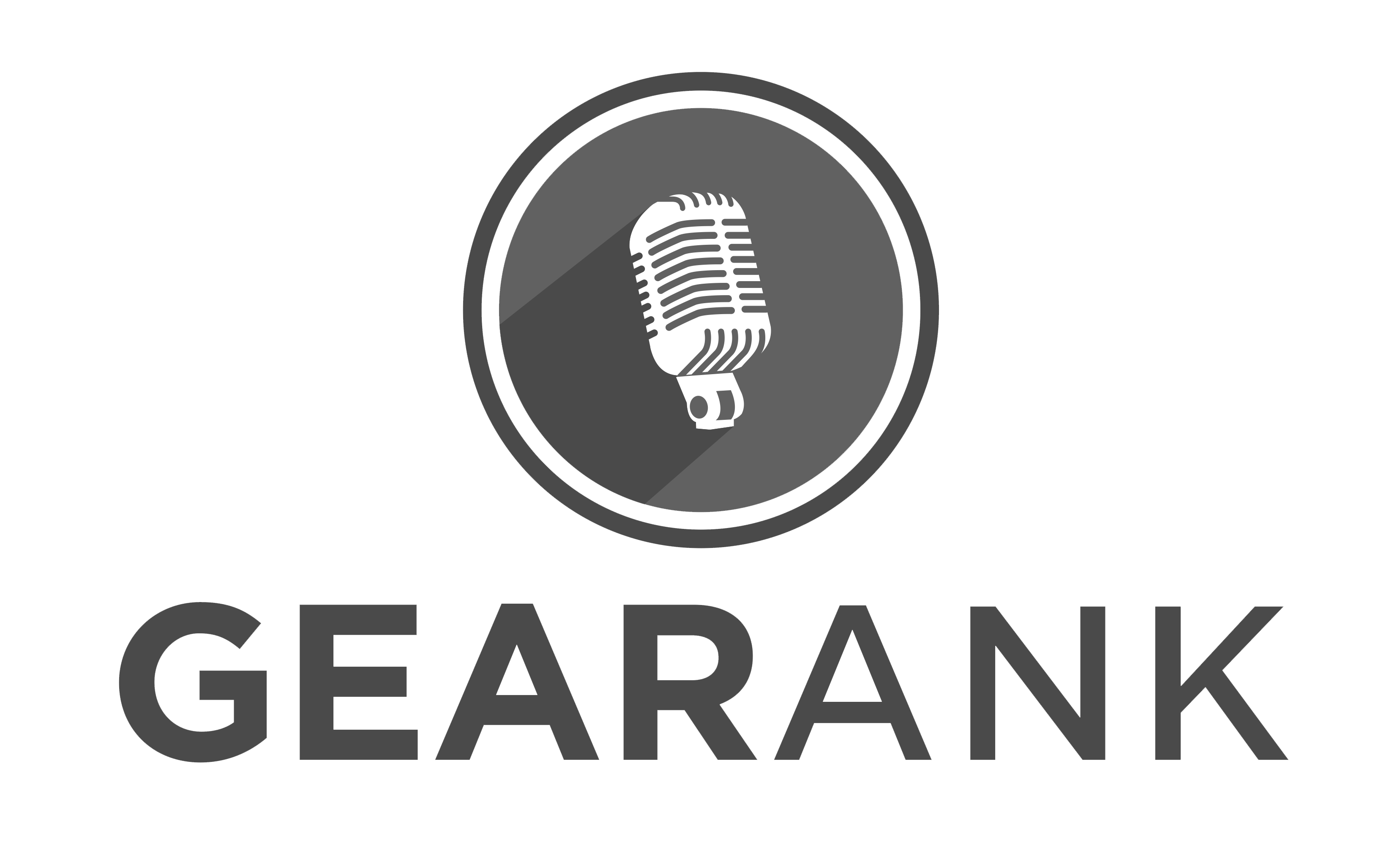




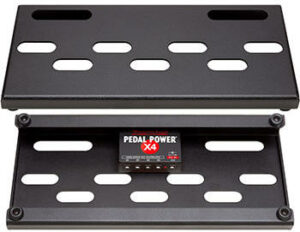
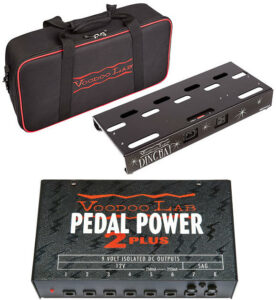


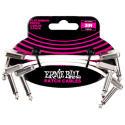
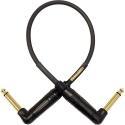
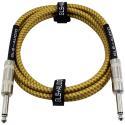

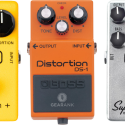
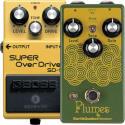
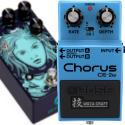
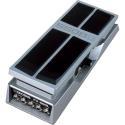
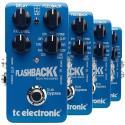
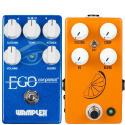
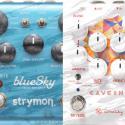

We have removed the Behringer PB600 from the recommended list due to being discontinued.
Publication of our October 2021 Edition resulted in the following boards coming off the recommended list above:
We’ve removed the following pedalboards from the recommended list above due to being discontinued, but you can still see our analysis of them:
As a result of the December 2019 update of this guide the following pedalboards came off our recommended list above but you can still read our analysis of them: